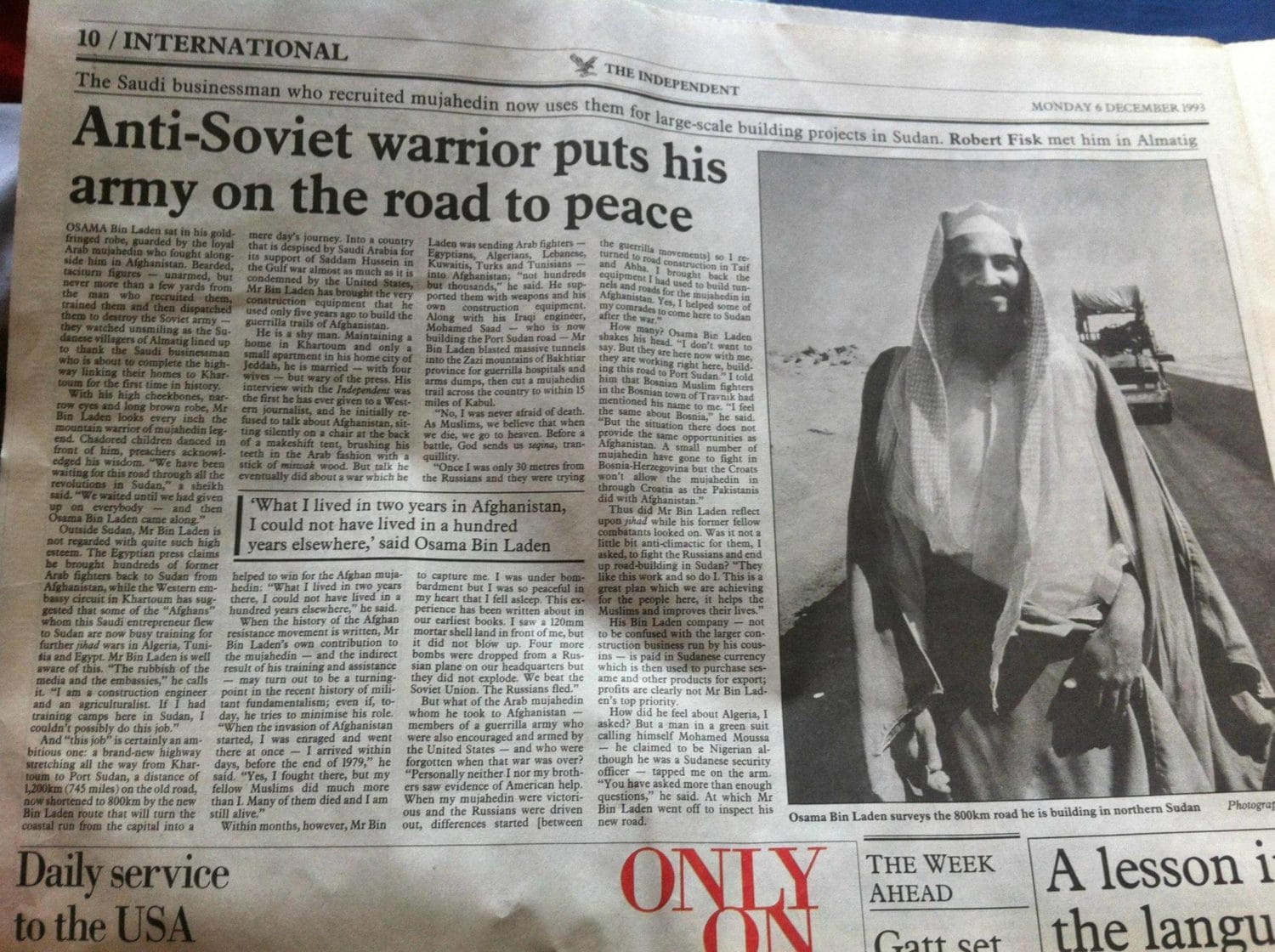For his speech giving May 4th, our annual Commemoration Day, General P. v. Uhm received much praise in the media. I am not one of those who think that his words struck their mark.
Beyond the thin veil of soothing (catch)phrases like ‘tolerance’, ‘justice’, ‘solidarity’, and the like, there is a whole microcosm of inconsistencies and flawed presuppositions, and, if you’ll forgive me these words: utter bullshit. Nice intentions, shitty execution. Everything that Van Uhm said resonated with our current public values: we should be helpful; we should be kind; we should fight injustice. What came back again and again and again was the notion that we should do ‘good’. And I will happily agree with him here: the question of doing good is important, if not vital, but this question wasn’t actually raised in this speech, it was simply assumed as self-evident in easy to swallow and easy to regurgitate sound bites. What I heard was an endless string of thought-terminating clichés. Bits and pieces of broken glass that, when puzzled back together into a single unit, only yielded a distorted mirror.
“In Europe people evidently know what Socrates thought he did not know, and what the famous serpent of old once promised to teach – they “know” to-day what is good and evil. […] Morality in Europe at present is herding-animal morality.”
F.W. Nietzsche, Beyond Good & Evil, § 202
Van Uhm spoke of “The Darkness” that his father faced when he fought the German invaders in 1940. “People were rounded up and deported because they were not ‘us’, but ‘them’.” We should go beyond the Us/Them dichotomy; this is a recurring theme in his speech. But this is not easy, if at all possible. And it is in stark contrast with the Dutch Commemoration: because we want to commemorate our victims, not anyone else’s. Just last year, there was brief but strong controversy over the poem Foute Keuzes (“Wrong Choices”), in which a 15 year-old high school student wanted to commemorate his great-uncle, a Dutchman who opted to serve in the German Waffen-SS. The rationale for forbidding this poem was that commemoration should be about the victims, and not about the perpetrators. Thinking in terms of Us/Them has been pivotal for Commemoration Day all along.
I think that this is one of the most dangerous core elements of our way of commemoration. This, I charged in my previous article: this stark focus on the victims is a danger to ourselves. We are falling into the trap of dehumanizing those who do inhuman things. The question of whether or not the perpetrators deserve commemoration (i.e.: on a moral basis) is not so much interesting to me, what I find most important is that we must not lose sight of how and why people become perpetrators. I want to repeat this once more for emphasis: we must not lose sight of how and why people become perpetrators! I can stand by the decision of the committee that to remember those who committed crimes against humanity is too sensitive for Commemoration Day; but I cannot stand the double standards of telling us not to think in Us/Them when this is all we ever do. If we want to prevent atrocities like these from happening again, we must understand how people turn from regular folk into monsters. I fully agree with the words of CNN journalist James Dawes: ‘There are some men who are natural monsters, but most monsters are made.’ By dehumanizing or simply ignoring the perpetrators, we are in danger of forgetting that these perpetrators were perhaps not all that different from you, me, our neighbors; or anyone else we meet in our daily lives. And social science has given us every reason to think that absolute evil is an everyday phenomenon. If we want to break the Us/Them dichotomy, we should be willing to accept the fact that those perpetrators of old could very well have been you and me.
Further done the line, Van Uhm spoke of his son, who was killed in action while serving his military duty in Afghanistan in 2008. “He fell. For another people. In another country. Five years and sixteen days ago.” For another people? I am sure that he meant the Afghani people, but the first thing that came into my mind was that this young man died for the interests of the Bush administration. All this talk about ideals shrouds the fact that Afghanistan is a complete mess because of Western intervention. Afghanistan was a prime example of progression in the Muslim world, that is, until the Soviets invaded and the West decided to support the Mujahideen fighters. Who would have thought that this would ever back-fire?

The problem of liberal democracy is that it didn’t win by democratic votes: it was war against national-socialism and fascism, and eventually a Cold War against communism that gave liberal democracy the upper hand. And even today, the struggle of ideologies continues. Saying that we shouldn’t divide the world in those who are with us and those who are against us fits right in the egalitarian mindset, where traits such as gender, race, and sexuality have become more and more irrelevant. But liberal democracy ultimately faces the problem of self-inconsistency: how do we deal with those who do not adhere to egalitarianism? Or to put it in a catch-phrase: ‘How are we supposed to tolerate the intolerant?’ If the Afghani insurgents that Van Uhm fought in Afghanistan were not ‘us’, then who were they? The Us/Them dichotomy cannot just be ignored, or resolved with good intentions, and until this problem has been addressed, we cannot allow ourselves to think that we are above and beyond it.

[…] 4th, Dodenherdenking (‘Remembrance of the Dead’). We at DutchReview certainly have been critical of the way in which we deal with the past. Still, there is no question here that we all agree on […]